
September 2013 Issue Highlights
For more complete coverage, send us an e-mail to
request a back
issue.

For more complete coverage, send us an e-mail to
request a back
issue.
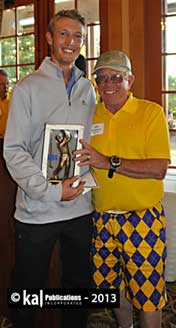
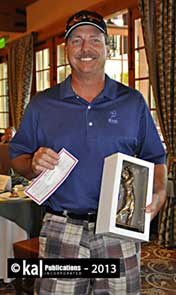
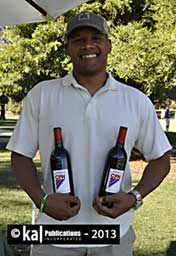
Northern California Petroleum Industry Golf Tournament

Northwest Pump & Equipment Customer Appreciation Barbeque
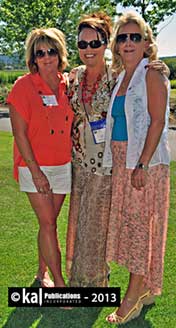
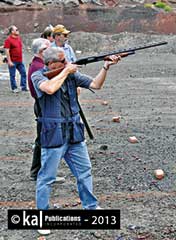
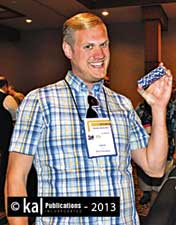
Oregon Petroleum Association Convention
Want to see the photos that didn't make the issue? Check out the Cutting Room Floor.
Federal Judge
Rules in Favor of Chevron in " Hot
Fuel" Cases
Pacific Ethanol
Expanding Production in Idaho
Study Finds
Costco Most Popular Fueling Stop
Tesoro To Pay
$1.1 Million Penalty For Testing
Violations
Los Angeles
Bans Plastic Grocery Bags
SAN RAMON, CA. — In what may signal the end of a series of lawsuits against gasoline marketers, a Kansas federal judge has granted a summary judgement in three "hot fuel" lawsuits that were filed against Chevron Corporation in California.
Last year, a federal jury in Kansas ruled that selling gasoline that was not temperature-controlled — "hot fuel" — did not violate consumer protections. Plaintiffs had argued that retailers (and defendants) 7-Eleven Inc., Quik Trip Corporation, and Kum & Go had defrauded their customers by selling them gasoline above the "industry standard" of 60 degrees Fahrenheit without adjusting the volume. The jury disagreed and dismissed the case.
Plaintiff's lawyers had filed "dozens" of similar "hot fuels" lawsuits across the United States, including three suits agains Chevron Corporation in California. According to the California Independent Oil Marketers Association, "California was targeted for its consumer orientation and consistently warm climate," in an attempt to get a favorable judgement.
However, in the latest decision, handed down in July, U.S. District Judge Kathryn Vratil ruled in favor of Chevron in the three class-action claims that had been filed in California, finding that Chevron complied with California law by selling fuel without adjusting the temperature and without disclosing to consumers the effect temperature has on the product as it is sold.
In her decision, Vratil wrote that, "Plaintiffs are in the difficult position of arguing that California law does not authorize the manner in which Chevron sells motor fuel in California — which is the same way every motor fuel retailer has sold motor fuel throughout the United States for more than a century."
The Society of Independent Gasoline Marketers of America noted that "The California ruling is a significant victory for fuel marketers because California is the largest U.S. state with the most drivers and therefore, the result of the California litigation would likely have influenced settlement terms in other ongoing cases."
As part of her decision, Judge Vratil also issued an order asking plaintiffs in other cases in California against smaller defendants to show why the reasoning in striking the claims against Chevron should not also apply to their cases. The plaintiffs will now be required to justify their cases before the court or withdraw.
With two legal precedents ruling in favor of fuel retailers, it is expected to have a chilling effect on the other hot fuel lawsuits that have been filed seeking damages.
Several other major oil companies had been named in the hot fuel lawsuits and had chosen to settle out of court with the plaintiffs. They include BP, Citgo, ConocoPhillips, ExxonMobil, Shell Oil Products U.S., and Valero.
SACRAMENTO, CA. — Pacific Ethanol announced that it has begun production of corn oil at the company's Magic Valley, ID. plant.
"Corn oil is a high value co-product with multiple markets including animal feed and biodiesel," explained Neil Koehler, president and CEO of Pacific Ethanol. "Corn oil sales at our Magic Valley plant diversifies our revenue streams, providing greater financial stability to the plant, and is expected to contribute as much as $4.5 million or seven cents per gallon of operating income annually."
Pacific Ethanol provides transportation, storage and delivery of ethanol in the Western United States, primarily in California, Arizona, Nevada, Utah, Oregon, Colorado, Idaho and Washington.
What is the consumer's favorite place to fill up? According to a recent study by Market Force Information, it is Costco.
According to MFI's 2012 fuel station study, nationwide Sam's Club was named second most popular with QuikTrip, Wawa, and RaceTrac filling out the top five.
Looking at the West specifically, Costco remained in the top spot in the West, Arco am/pm came in second and Chevron and Shell tied for third.
When asked where they most frequently fuel their cars, less than half (49%) said they go to a national gasoline station chain, and 21% said they visit a local station. Nearly one-third (32%) said they most frequently fuel up at either a grocery store or wholesale club.
When asked how they choose a service station, the highest factor is convenience, according to the study, followed by fuel prices. Other important factors included ease of entry and exit, and a feeling of safety and cleanliness.
MFI asked consumers to rank each chain individually in the five areas that consumers indicated matter most to them, and what drove them to choose one filling station over another. Looking at just the top five attributes — convenient location, fuel price, ease of entry and exit, feeling of safety and cleanliness — QuikTrip and Costco were listed first and second place in nearly every area. Sam's Club was second in fuel price category and Phillips 66 was among the top three for a feeling of safety.
It was not all good news for service stations.
"In this survey, we found that nearly half of consumers were either unsatisfied or neutral in regards to their most recent trip to a fueling station," said Janet Eden-Harris, chief marketing officer for Market Force, announcing the results. "This presents significant opportunity for the stations to increase their business by delighting their customers on several customer experience variables."
SALT LAKE CITY, UT. — Tesoro Corporation has agreed to pay $1.1 million to settle claims that it violated the Clean Air Act at four of the company's refineries.
According to the U.S. Environmental Protection Agency, Tesoro did not comply with record keeping, reporting, sampling and testing requirements at its refineries in Alaska, Utah, Washington, and North Dakota. The violations, which were made as part of the company's gasoline production, took place between 2003 and 2006.
The EPA noted that the violations did not result in any known damage to health or the environment. They also noted that the penalties were the "largest ever issued" for this type of violation.
In addition to paying the $1.1 million civil penalty, Tesoro is also required to submit a plan to ensure the company will test batches of gasoline at all seven of its western U.S. refineries in the future.
LOS ANGELES, CA. — The City Council of Los Angeles has approved an ordinance which bans the use of plastic grocery bags by food stores, convenience stores, and retailers with groceries, effective as of January 1, 2014.
Under the new law, consumers will have to bring in their own bags to carry their purchases or pay a 10-cent fee for each paper bag requested from the store.
Businesses who are found to be in violation of the law will face a $100 fine for the first violation, $200 fine for the second, and $500 for the third. Fines accumulate for each day the violation continues.
Members of the Los Angeles City Council said they enacted the ban to send a message to California state legislators to encourage them to create a state-wide ban on on the use of plastic grocery bags. "Enough waiting for the Legislature to someday act on this," stated L.A. City Councilman Paul Krekorian. "Let's take a lead."
Los Angeles is the largest city to ban plastic grocery bags.
Originally published in the
September 2013 issue of O&A Marketing
News.
Copyright 2013 by KAL Publications Inc.
Serving the 13 Western States, the World's Largest Gasoline, Oil, Fuel, TBA and Automotive Service Market